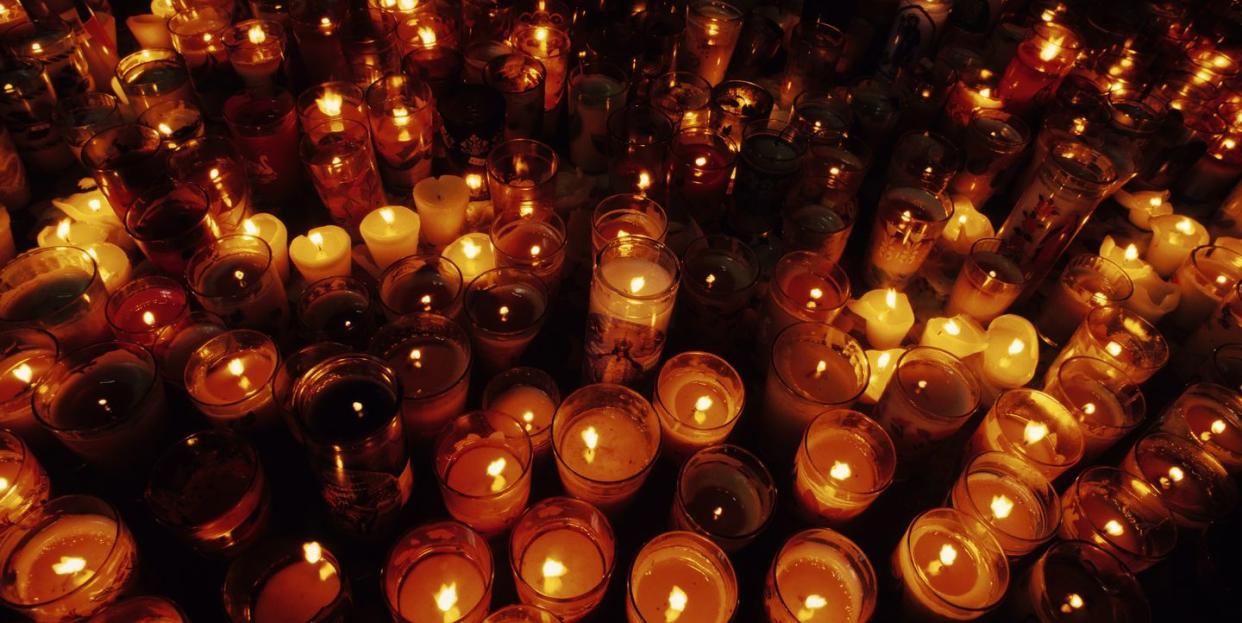Single in Consciousness, a Community with the Divine

It started one day when I walked into a synagogue alone. I’d never been observant and was, frankly, surprised to find myself there. But my impetus was perhaps predictable: My father had just died with mind-blowing swiftness. One minute he was laughing and dancing, the next he was gone.
I had returned from the funeral and my hometown, hundreds of miles away, to find the world made strange, and when I entered that synagogue, the unfamiliarity of its rituals and my aloneness in a situation where everyone seemed to be part of a couple or group made it even stranger.
I have never lived alone a day in my life. Most of the time I’m surrounded—by my husband, my children, other people’s children, my colleagues, friends. The telephone is ringing; someone’s at the door. Somebody is finishing my sentence, thank you; someone else is eating off my plate. But grief, I discovered, makes everybody solitary; it’s a salty dish we cannot share. We’re set apart most cruelly, even from the self we thought we knew.
In Judaism there’s an ancient prayer called the mourner’s Kaddish, which twice during a service those who are grieving rise to recite. Written in Aramaic, it richly praises God, says nothing about death, but is intended to be spoken by the brokenhearted. Standing by myself, trying not to botch a transliteration of a language I don’t know, in a room full of people I did not know, made me feel conspicuously isolated. I craved and dreaded this condition, both, as if it were a wound I had to probe.
Week after week I returned by myself, a small, inward person barely audible. If at any point the rabbi had attempted to glad-hand me (“So who died? Let me tell you some platitudes”) I’d have hightailed it out of there, but I think he understood that I had no wish to talk and kindly let me be.
The year of mourning ended, and still I came back, and still I came alone. My husband and I are not the same religion, and the evening service at this synagogue is seldom attended by children. I’d begun to like becoming absorbed in its rhythms without reflexively anticipating someone else’s feelings, reactions, opinions, and needs. I liked not having to worry about whether anyone was bored, tired, irritated, thirsty, needed to go to the bathroom, or wanted to go home. I relished having nothing in my head but my prayer.
When I looked more closely, I realized that, of course, I was not the only person in her pew alone; it had only felt that way. Here was someone else—and here and here. And beneath the surface, each and every man and woman was alone anyway; our consciousness is singular. Solo, we’re most fully ourselves in some ways and, one could argue, most able to commune with the divine.
But how porous, after all, are the walls of solitude? There in a gathering of people joined by common purpose, how different could the prayers and the secrets in our hearts really be? How intractably at odds could they be from those of almost anyone anywhere? We are all connected, not only by dint of the coincidence of being alive in the present but also by that shared part of us that transcends time.
Praying alone, for half a decade now, in gratitude, sorrow, joy, and repose, I find myself in some true light, and when I am luckiest—not every week, but sometimes—I enter community in the deepest sense.
You Might Also Like

